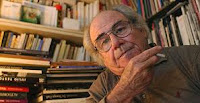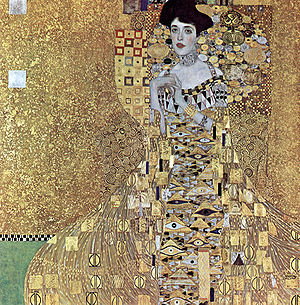It had to happen. I mean although it’s not one of the biggest questions concerning philosophers, usually it is one of the answers to the meaning of life.
Death.
Yet, it’s not so simple, because as you might know within philosophy there are questions about questions and that’s when we get metaphysical. So now the biggest question is what is the meaning of death?
Well I have two great pieces of news. The first is there is a course on the meaning of death. It is called "death", which is obvious for a course on death I guess. It is taught by Professor Shelly Kagan from Yale University. The second piece of great news is that this course is FREE! Unlike the audio book for the meaning of life which isn't really free.
 |
| Prof Shelly Kagan |
The course has 23 lectures and it covers several aspects relating to the meaning of death, but be warned, some of the lectures are aimed at high level graduates, while most of the lectures are available for anyone to dive into.
Let’s have a closer look at what this course covers?
Kagan lets us know his conclusion about death at the start of the course, if you do not like his answers, do not let it put you off the course entirely, since the course is quite an eye opener. We all can get something from the course.
We get to look into the dualism which is mind/body problem of death, which is to state what happens after death. Do we get to live on in another form? Do we have a soul? Does that soul die also?
We then move on the Plato's arguments for the soul and for most of you out there, Plato believed that we can live on in another form, but are his arguments cohesive? Do they make sense?
Next the course moves on to personal identity, I would say this part of the course is where things get little tough, because the course seems to move on to what is known as individuation theory. What is the identify of something through space and time when it ceases to exists? We then move on to how we can be sure if the identify of something or a person is lost? Such theories work best on mechanical objects like a car or train, which Kegan will actually use to define this difficult concept.
We then move on to the badness of death, where we get help from Leo Tolstoy (the Great Russian novelist) and some other great novelists. What is so bad about death? How does existentialism fit into the definition of death? This lecture I felt was a real eye opener, but at times I just cannot help trying to break or counter Kagan's logic on why he felt some arguments for the badness of death does not make sense.
The course then moves on to immortality, who on earth does not want to be immortal? I mean is death such a bad thing that one prefers to live forever instead? Maybe this is not such a good idea as Kagan explores this subject in great detail. I have not been through all the lectures, but mainly identify theory, badness of death and dualism. I have also just listened to lecture 22 called “The fear of death”.
 |
| Time flows away |
Fear of death
On this particular lecture, we look at the emotions. Is it appropriate to have a fear of death? What are the conditions for these emotions? Here we look at the psychology of death concerning if we have anyone to blame for death. We know death is coming, so who is to blame? How shall we feel when death takes its icy claws and draws nearer to us?
This lecture also takes a look at our personification of death? If there is someone to blame, then how does this affect our emotions? Examples of the personification of death would be god, since many people would blame god for allowing us to live and then taking our lives or placing in the condition that we have to die, this idea is explained psychologically in this lecture.
We examine pride, fear, sadness and anger. One thing about being alive is that we cannot avoid our emotions. Our emotions revel themselves to events even before we think, maybe perhaps they are ingrained deep within us, perhaps learnt from society or from our habits. Yet when it comes to death, are our emotions rational? Are the emotions appropriate?
Some emotions like sadness or worry might make sense, but it seems fear actually might not be rational since fear does not three conditions. I will not tell you all of the conditions, because I want you to listen to this lecture, heck! I want you to listen to the course (if you have time). Alas time is short, so make time before death takes us, because the meaning to life can heavily lend to the meaning of death and to make sense of life, we must come to terms with death. Within this course we shall find meaning and this is the meaning of death.
Style of course
The lectures (except the first one) are long, nearly an hour per lecture. That’s good, because there is so much to get out of this course, but then it’s bad if you want to get a straight answer. It is worse if you find the course might be out of your level and you still find that you do not understand the meaning of death.
Kagan loves to use examples for his theories, which is good because some theories are difficult to get your head around. This course looks at highly metaphysical arguments, which means beyond ideas that could be easily measured, so Kagan will try to lessen the damage by tackling tough answers from our psychological understand of death.
Sometimes Kagan might take some time to get to a point, but its worth waiting around, because again the ideas can be pretty hard to work out. You might have to read in between the lines. Make sure you listen to the lectures more than once, some will not make sense and you may have to reference the lectures against other material.



















